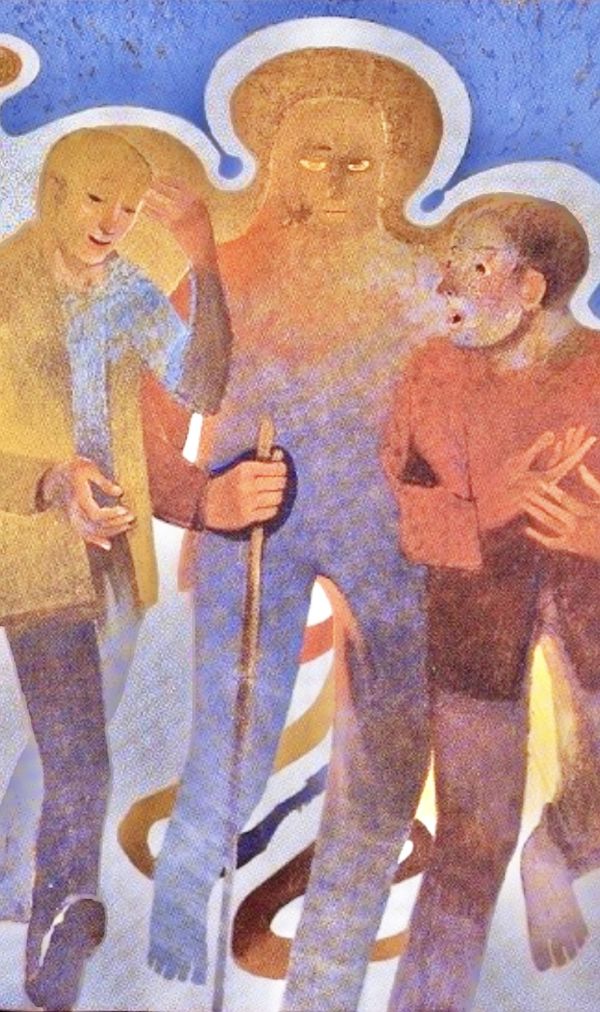(Lk 24:35-48)
We do not recognize a person by hands and feet (v.39).
The Risen One has a life that escapes the perception of the senses, however the Resurrection doesn’t cancel the ‘person’, but expands it.
The identity and the being that distinguishes it is of another nature, but the heart is that, characterizing. Love to the end: unsparing action [hands] and walk [feet], which non-faith marginalizes, humiliates, kills.
One does not grasp Christ outside the experience of sharing, witnessing, Mission - tip of the text - that extends among all people.
An evangelization starting from direct heralds and enthusiastic auctioneers. Centered ones in the nucleus of the Announcement, which moves everything and gives access (vv.35ff).
And finally, thanks to the intelligence of the Scriptures - which brings us out of commonplaces and vague interpretative automatisms.
All of this, in the specific listening and forgiveness that makes us participate; in the commitment that risks, walks, and talks.
The human plan of the Creator has assumed a pedagogical configuration in the Law; it was taken up, actualized and purified by the prophets, and sung in the psalms (v. 44).
But those who «see and touch» are disciples who involve themselves to the point of making their soul movements, their exoduses to the peripheries, and their passionate gestures, coincide with the own love wounds of the Master: «Palpate me and see» (v.39).
In the early days, believers - here and there - made it through thanks to the help of fraternities in which the Person of the Lord ‘manifested’ himself persuasively, because «in the midst» (v.36).
Not "on top" or "in front", but brother to brother: a testimony of the divine (v.48).
He ‘revealed’ himself Living, in Conviviality - a key Word, climax of the entire Bible.
Sharing that also found the ways of sensitive, personal intimacy and confidence: «They handed him a portion» (v.42).
For this reason the Proclamation had to start from Jerusalem, the first of the «pagan peoples» [v.47 Greek text] in need of evangelization!
And thereby not making Christ a ghost (v.37).
In the early communities, listening to the personal and communal inner world was especially pronounced, because the direction of travel proposed by the Master seemed to be all backwards [in the opposite of institution].
Despite the chaos of external securities, the crossing fear-to-Freedom came from a tolerant perception - starting from visceral cores of experience.
The very bottlenecks accentuated change and internalization, and wrenched disciples out of the habit of setting up conformist harmonies.
One then relied more willingly on the tracks of the soul, thus meeting one's deep nature; new axis of life, starting from the ‘roots’.
The search for a new compass for one's paths, the loss of predictable references, social discomfort, all this made one in contact with oneself and others, authentically.
That feeling of anxiety, malaise and sores, allowed them to know their Calling... even if the external way they saw themselves and dealt with normal or spiritual existence, could already satisfy [the outside].
Having to move from the habits, no one escaped the most precious revelation anymore: of the primordial and humanizing intimacy deposited in the fraternity of the new crucified Way.
Educated by the paradox of narrowness, the uncertain apostles thus became step by step the seekers of a trace, of a more pertinent course.
Pilgrims of unexpected codes. «Witnesses» (v. 48): mothers and fathers of a new humanity.
[Thursday between the Easter Octave, April 24, 2025]












